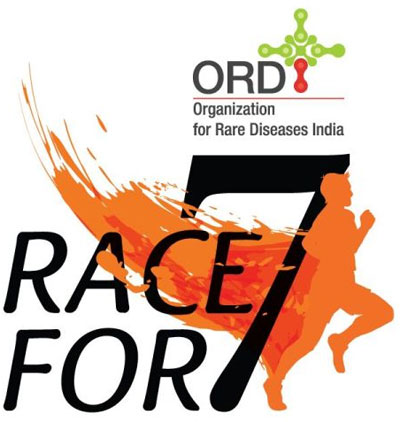Multiple sclerosis (MS) is a demyelinating disease in which the insulating covers of nerve cells in the brain and spinal cord are damaged. This damage disrupts the ability of parts of the nervous system to communicate, resulting in a range of signs and symptoms. Specific symptoms can include double vision, blindness in one eye, muscle weakness, trouble with sensation, or trouble with coordination. MS takes several forms, with new symptoms either occurring in isolated attacks (relapsing forms) or building up over time (progressive forms). Proposed causes for MS include genetics and environmental factors such as being triggered by a viral infection. MS is usually diagnosed based on the presenting signs and symptoms and the results of supporting medical tests. There is no known cure for multiple sclerosis. Treatments attempt to improve function after an attack and prevent new attacks.
Multiple sclerosis is the most common immune-mediated disorder affecting the central nervous system. The disease usually begins between the ages of 20 and 50 and is twice as common in women as in men. The name multiple sclerosis refers to the numerous scars (sclerae) that develop on the white matter of the brain and spinal cord.
Symptoms
Multiple sclerosis signs and symptoms may differ greatly from person to person depending on the location of affected nerve fibers. They may include:
- Numbness or weakness in one or more limbs that typically occurs on one side of your body at a time
- Partial or complete loss of vision, usually in one eye at a time, often with pain during eye movement
- Prolonged double vision
- Tingling or pain in parts of your body
- Electric-shock sensations that occur with certain neck movements, especially bending the neck forward (Lhermitte sign)
- Tremor, lack of coordination or unsteady gait
- Slurred speech
- Fatigue
- Dizziness
- Problems with bowel and bladder function
MS is can be classified into different types depending on the course of the disease:Relapsing Remitting MS (RRMS), Secondary-Progressive MS (SPMS), Primary Progressive MS (PPMS), Clinical Isolated Syndrome (CIS), Radiologically Isolated Syndrome (RIS), Tumefactive MS, Pediatric MS etc
Causes
The exact cause of multiple sclerosis is not known. Many researchers suggest that the disorder may represent an abnormal immune reaction directed against the body’s own tissues (autoimmune disorder). According to many researchers, the autoimmune process may be triggered by exposure to particular environmental agents (e.g., certain bacteria or viruses) in individuals with a genetic susceptibility for MS. Other important environmental factors seem to include vitamin D insufficiency, tobacco smoking,
Diagnosis
The diagnosis MS is based on certain clinical criteria including age of onset, clinical pattern, history, and neurologic findings typical of MS. Ultimately, MS is a clinical diagnosis because, while there are many laboratory tests, there is no one definitive test that firmly establishes the certainty of the disease; therefore, it is important that this diagnosis be made by an MS specialist.
Clinical features that suggest MS include the age of onset which is typically between the ages of 15 and 50 years. The more common presentation is with symptoms that are episodic and spontaneously improve (relapsing-remitting).Magnetic resonance imaging (MRI) is the major diagnostic laboratory tool that can support the diagnosis. Particular characteristics of imaging findings include multiplicity of lesions (changes in the brain), large diameter, and ovoid shape in particular locations in the brain typical of MS. If the findings are inconclusive, the person might have to undergo a lumbar puncture (spinal tap) to examine the cerebrospinal fluid (spinal fluid contents) to evaluate for immunologic patterns. Spinal fluid provides important complementary information to rule out other conditions related to infections or other diseases as well as to support the diagnosis of MS. Blood tests may be required to exclude other diagnoses.
Treatment
Although multiple sclerosis (MS) has no known prevention or cure, there are treatments available to manage symptoms, alter the course of the disease, and help with relapses.
- Recurrent attacks and relapses are commonly treated with corticosteroids. These drugs do not slow down, inhibit future relapses or stop the progression of this disorder.
- Physical therapy and exercise programs (especially aquatic or water therapy) are of value in most patients.
- Frequently people with MS require a team approach to manage their disease along with medications, rehabilitation, counseling, and educational services.
- Disease-modifying medications help to reduce the frequency and severity of attacks and appear to slow down the progression of disability. It is believed that these drugs are most effective when started early, before the disease progresses further.
- The following consensus paper by the Multiple Sclerosis Coalition discusses disease-modifying drugs that have been approved by the FDA:
http://c.ymcdn.com/sites/www.mscare.org/resource/collection/A0711E7F-0EFA-43B2-AEB9-96ABB9D8F4E6/DMT_Consensus_MS_Coalition092016.pdf - In 2018, Gilenya (fingolimod) was approved by the FDA to treat relapsing MS in children and adolescents age 10 years and older.
Resources
- NHS: https://www.nhs.uk/conditions/multiple-sclerosis/
- Multiple Sclerosis Society of Canada: https://mssociety.ca/about-ms/what-is-ms
- MS Society: https://www.mssociety.org.uk/about-ms/what-is-ms
- National Multiple Sclerosis Society: https://www.nationalmssociety.org/Treating-MS/Comprehensive-Care
- National Organization for Rare Diseases: https://rarediseases.org/rare-diseases/multiple-sclerosis/
If you know anyone with Multiple Sclerosis, or if you are a physician interested in collaboration, please get in touch with the ORDI team.
Write to us: contactus@ordindia.in
Rare Disease helpline -+91 8892 555 000
Curated by – Ms Anu Sara Philip





